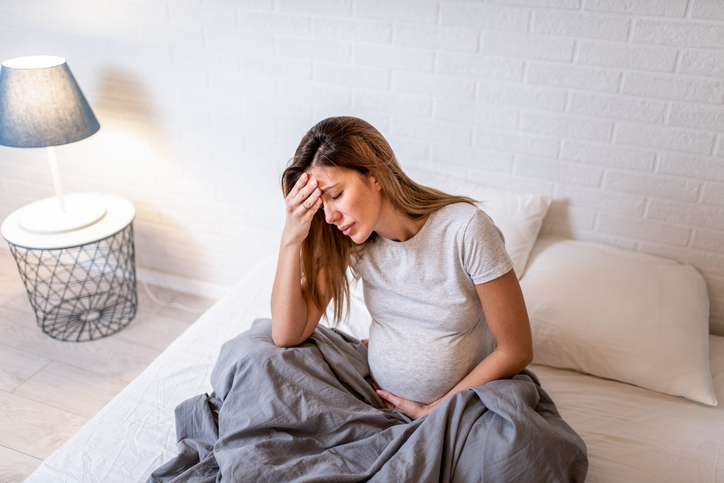Women with autoimmune disease are more likely to experience depression during pregnancy and after childbirth; conversely, women with a history of perinatal depression are at higher risk of developing autoimmune disease, according to a new study in Molecular Psychiatry.
For the study, researchers used data from the Swedish Medical Birth Register and identified all women who had given birth in Sweden between 2001 and 2013. Of approximately 815,000 women and 1.3 million pregnancies, slightly more than 55,000 women had been diagnosed with depression during their pregnancy or within a year after delivery.
The researchers then compared the incidence of 41 autoimmune diseases in women with and without perinatal depression, controlling for familial factors such as genes and childhood environment by also including the affected women’s sisters.
The results reveal a bidirectional association between perinatal depression and autoimmune thyroiditis, psoriasis, MS, ulcerative colitis, and coeliac disease. Overall, women with autoimmune disease were 30% more likely to report perinatal depression. Conversely, women with perinatal depression were 30% more likely to develop a subsequent autoimmune disease.
The association was strongest for the neurological disease MS. It was also strongest in women who had not had a previous psychiatric diagnosis. Since this was an observational study, no conclusions on causality can be drawn.
“Our study suggests that there’s an immunological mechanism behind perinatal depression and that autoimmune diseases should be seen as a risk factor for this kind of depression,” says the study’s first author Emma Bränn, researcher at the Institute of Environmental Medicine at Karolinska Institutet in Sweden, in a news release.
The researchers will now continue to examine the long-term effects of depression during pregnancy and in the first year following childbirth.
“Depression during this sensitive period can have serious consequences for both the mother and the baby,” says Bränn. “We hope that our results will help decision-makers to steer funding towards maternal healthcare so that more women can get help and support in time.”


